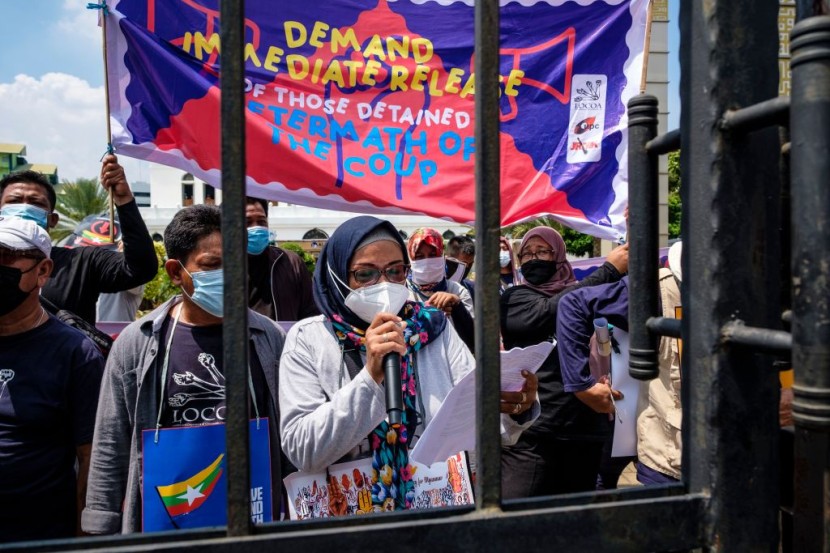
Myanmar's military authorities on Wednesday said they plan to release 2,000 people from jails across the county, including actors and celebrities who took part in several anti-coup protests.
In Yangon's Insein jail, prison chief Zaw Zaw said he is expecting to release at least 700 prisoners, including some of the thousands of people who were arrested for opposing military rule, as reported by Reuters.
The prison chief said he did not have a list of the names of people being released, but some reports suggest it could include people who previously spoke out against the coup.
Release of Thousands of Prisoners
Rumors began spreading Saturday after several family members of detainees gathered outside the Insein prison. On Wednesday morning, hundreds waited outside the prison's gates in anticipation of release.
News of the release came a day after the government announced it would dismiss all charges against 24 celebrities who were detained for incitement, according to Aljazeera.
More than 5,200 people have been detained since the Myanmar junta ousted the government and detained Aung San Suu Kyi, President Myint, and other top figures from the ruling National League for Democracy (NLD).
The junta, locally referred to as the Tatmadaw, accused the NLD of election fraud after getting a landslide win, even after the election commission rejected the unfounded claims. The military also claimed that Suu Kyi, 76, violated COVID-19 protocols, illegally possessed two-way radios, and incited to commit crimes. Her lawyer has since denied the allegations.
The military then declared a year-long state of emergency and elected Senior General Min Aung Hlaing as the leader.
Following Suu Kyi's arrest, Myanmar residents, including student groups, called for civil disobedience campaigns and banged pots and pans in protest of the military ruling. On Feb. 3, staffers from at least 70 hospitals across the nation stopped working to protest.
Read Also: US Troops Near Formal Afghanistan Withdrawal, General Miller: Possibility of Civil War Looms
Myanmar's Military Junta
On Feb. 4, the junta arrested at least three people who took part in the nation's first street protest against military takeover. The demonstrators brought banned and chanted anti-coup slogans.
On the same day, the United Nations Security Council also urged the military government to release Suu Kyi, members of the NLD party and other residents who were imprisoned for protesting.
On Feb. 6, the junta blocked access to Twitter and Instagram nationwide. According to Aljazeera, the move came after protesters were seen sharing information online. The decision led to a protest against the coup in Yangon and other cities, which was attended by tens of thousands of people.
On Feb. 13, the Tatmadaw suspended laws that banned forces from detaining suspects or searching private properties despite not having court approval. It also threatened to take legal action against people who refused to work. The move later led to further disruption after air and train travel staffers refused to work.
On Feb. 20, the junta opened fire on rallying workers and protesters, killing at least two people. The action was later condemned by Singapore and UK; the latter threatened to take "further action."
On March 3, the junta killed at least 38 people in the bloodiest crackdown since the military took power.
Related Article:








